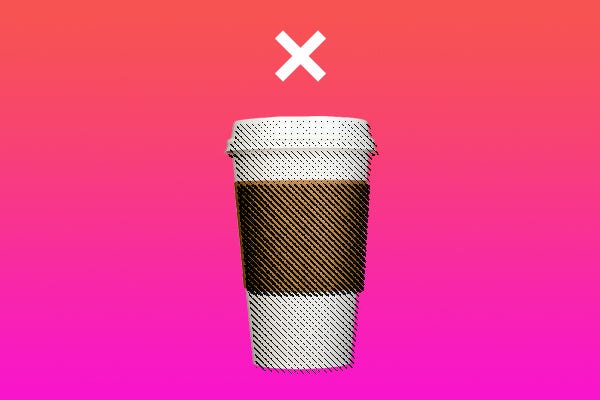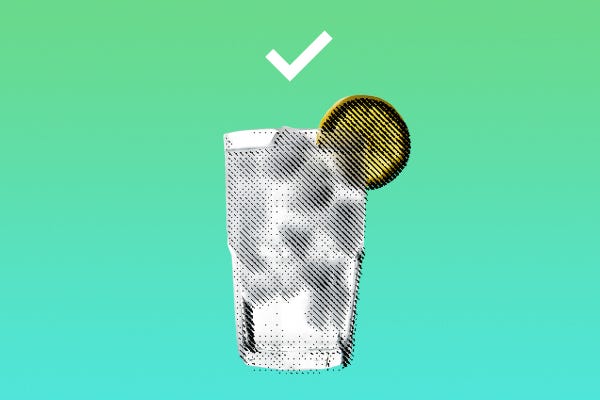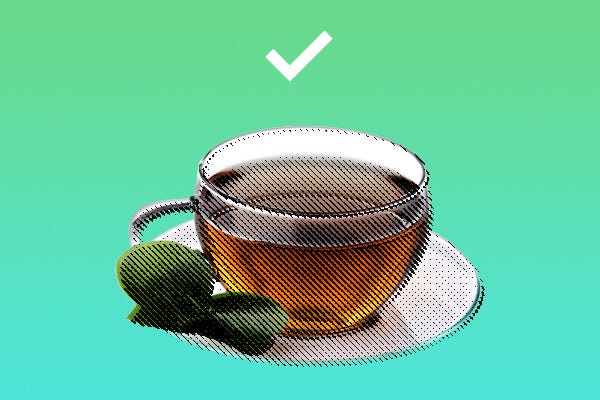This article was last updated on April 16, 2022
Canada: ![]() Oye! Times readers Get FREE $30 to spend on Amazon, Walmart…
Oye! Times readers Get FREE $30 to spend on Amazon, Walmart…
USA: ![]() Oye! Times readers Get FREE $30 to spend on Amazon, Walmart…
Oye! Times readers Get FREE $30 to spend on Amazon, Walmart…
Raise your hand if you’ve heard or uttered the words “I’m on a detox” this year. Everyone? Okay. Well, have you ever taken a moment to ponder what, exactly, are these dastardly toxins we’re desperately trying to purge? Are they a legitimate threat? Should everyone indeed be doing a detox, or is it all a ridiculous sham concocted by a consortium of very wealthy juice makers? Behold, we bring you: The truth about toxins.

Toxins, toxins everywhere
“A toxin is anything that could cause damage to the body in one way or another,” says Dr. Andrea Maxim, ND. So, technically speaking, everything is toxic, even water if you overdo it. However, our bodies are beautifully intelligent, says Maxim, designed to protect us against these toxins bydetoxing 24/7 through our sweat, breath and, of course, #1 and #2.
In theory, we shouldn’t have to do anything special, but “We do not live in the garden of Eden,” says Kim Schuette, CN, CGP. In fact, over 3.6 billion pounds of chemicals were released into the environment in 2012 alone. Safe to say, Eden this is not. And, according to Dr. Andrea Gore Ph.D, Professor of Pharmacology and Toxicology at the University of Texas, the rising number of environmental chemicals has directly paralleled increases in many diseases — and that’s no coincidence.

Your poor, poor liver
In addition to its more than 500 other jobs, your liver is in charge of breaking down and disposing of all chemical substances we’re exposed to — but we learned that in 9th grade biology, so what’s the big deal? No big deal, if you don’t drink alcohol, smoke, take over-the-counter medications like aspirin or prescription mediations like birth control, you never eat food that’s processed (or wrapped in plastic or not organic), you don’t wear makeup, deodorant, use body lotion, or clean your house. If, however, you do happen to do any of those things, add them to the environmental toxins, and you’ve got yourself a long list of extra work for your liver.
But I feel…fine?
“You’re not going to die — at least not right away — and over the short-term there probably are very few consequences,” says Gore. However, “There’s an old saying in toxicology, ‘The dose makes the poison,’” meaning that the more of a chemical you’re exposed to, the worse its effect, she says. The question is: At what point does that build-up of chemicals trigger a response? Each one of us has a different toxic “tipping point,” determined by our genes and our lifestyle, says Gore. “It’s like smoking; some people can do it for 50 years and never get lung cancer, other people are not so lucky.” So, even though you might not kick the bucket, that’s not to say you couldn’t experience some subtler, but still potentially devastating, effects.

Signs of toxicity
Number one: whacked-out hormones. Many of the toxins we’re exposed to are termed “endocrine disruptors,” because they can interfere with the production, action, and/or elimination of the natural hormones in our endocrine system. This interference happens, in part, because these chemicals mimic the appearance, but not function, of our hormones. The body responds as if hormones are actually present when they’re not.
Additionally, when chemicals enter our body, our liver has to prioritize detoxifying them over breaking down and eliminating estrogen, progesterone, and testosterone.
All this can cause hormonal imbalances, ultimately wreaking havoc on any system controlled by hormones, including cellular metabolism, reproduction, sexual development, blood sugar and mineral balance, heart rate, and digestion — to name but a few. As a result, endocrine disruptors have been linked to obesity, infertility, early puberty, and thyroid disorders, says Gore. However, the effects of these chemicals are on a spectrum she emphasizes; again, depending on our genes, lifestyle, and total “body burden” they might affect us a little or a lot. Less severe signs of endocrine disruption can be things like weight gain, acne, blood sugar dysregulation, the dreaded ‘man boobs,’ and PMS symptoms. According to both Maxim and Schuette, your period should come and go without sending you totally off the rails, “We shouldn’t have these wild, erratic mood swings and feel like the size of a balloon” says Schuette. Hmm…
Other common symptoms of toxicity: fatigue (sleeping all night yet still waking up feeling like you’ve been hit by the NyQuil Express), dark or red circles under the eyes, and other skin disorders like eczema or psoriasis.

Where are the toxins?
As we said, toxins are pretty much everywhere. In addition to the billions of pounds being pumped into the atmosphere, there are those that we eat, slather on our skin, and scrub into our scalps on a daily basis. In fact, a majority of the toxins we come into contact with are lurking in our own bathrooms says Schuette, and unlike toxins we ingest or breathe in, those applied to the skin absorb directly into our bloodstream. Yikes.
The most known toxic offenders include: phthalates and parabens, which can be found in things like cosmetics, aerosols, air fresheners, shampoos and body lotions; toxic metals, mercury, and aluminum, which are in dental fillings, deodorants, and aluminum foil (duh). BPA, which can leech into our food from plastic containers and can linings; volatile solvents, inhaled from things like gasoline, exhaust, nail polish and remover; PFCs found in things like non-stick cookware; pesticides, used to protect non-organic crops; PCBs (although banned in the 1970s, PCBs still pose a threat thanks to soil and groundwater contamination).
So, I have to wear a facemask and stop wearing deodorant?
No, according to Gore, lightening your toxic load is actually easier, more effective, and cheaper than you might think. She says simple things like washing your fruits and veggies can make a big difference over the long-term. She also recommends minimizing your use of plastic, especially heated plastic – meaning keep it out of the microwave (this includes plastic wrap) — and ditching any water bottles that have been baking in the sun. Also, try to avoid canned food that’s not labeled “BPA-free.”

Sleep is free, stress is not
Next, both Schuette and Maxim agree if you want to make any kind of significant change to your health, you have to clean up your diet. Good thing their plan is simple: Eat primarily nutrient-dense foods (that don’t come in a box or bag). Schuette favors a Weston A. Price-style approach — and drink plenty of water. Finally, both nutrition gurus emphasize the importance of sleep and stress management when talking toxins. This is because both lack of sleep and stress cause your body to produce the hormone cortisol, which not only makes your liver work to increase your blood sugar, but depresses your immune system. So, brush off the haters and get on a regular sleep cycle.
Can’t I just do a detox?
When it comes to detoxifying, all three experts favor lifestyle changes over quick “fixes” like trying to white-knuckle it, subsisting solely on lemon juice and syrup for days on end. Taking on one of these extreme detoxes unsupervised can actually wind up doing more harm than good says Maxim, especially if you’re already struggling with elimination issues like constipation, irritable bowels, or other digestive trouble.
Additionally, if you don’t know how to support your body with the right nutrients, the more starvation-geared, liquid-only cleanses can send your blood sugar on a roller coaster, further stressing out your liver. Plus, Schuette says, you can’t “go clean” for a week and expect to undo years of buildup. Go figure.

Track your toxins
Good thing we live in the age of the interweb, which has made it easy and kind of fun to figure out where you’re getting your daily dose of toxins. The Environmental Working Group has a highly addictive site where you can search a database of over 74,000 beauty and personal care products to find out where your faves rank in terms of toxicity. Schuette says to aim for a rating of zero to two for any products you use on a daily basis. The EWG has several other tools dedicated to toxic evasion including a household cleaner “Database of Shame,” the Dirty Dozen and Clean Fifteen guide to produce, a bottled water scorecard, and a carnivore’s guide to responsible, drug-free meat. For more information on environmental toxins, you can check out the Agency for Toxic Substances & Disease Registry or the EPA’s site, which lets you search toxicity based on zip code.

This sounds expensive…
There are plenty of low-scoring beauty brands you can find at the drugstore, and the Local Harvestwebsite helps people buy local, seasonal food directly from a farmer, either through a farmer’s market or community supported agriculture programs (CSAs). Most of the time, this is cheaper than buying organic in a store and you can put a feather in your cap for supporting small businesses — yay! And finally, for as many chemicals there are the atmosphere, there’s just as many websites, blogs, and pinners dedicated to non-toxic life hacks, like making your own cleaning supplies that cut chemicals and costs. Deals all around.

If you REALLY want to do a detox…
The best way to ensure you’re getting what you pay for is to work with a practitioner who knows what they’re doing. This way, your program can be tailored for your needs and any pre-existing condition you might have, says Maxim. “When doing a more intense type of cleanse you need to make sure your body is being supported with the right nutrients at the right times, and an experienced practitioner will be able to determine which ones you need and how to adjust them.”
So, bad news, there are a crapload of toxins out there and probably no such thing as a miracle detox in a box. On the bright side, reducing your toxic burden is not as hard as you might think. Read labels, know where your food comes from and what you’re putting on your skin, and try and cut down where you can. Everything in moderation, right?
Illustrated by Ammiel Mendoza.
Click HERE to read more from Refinery29.

Be the first to comment